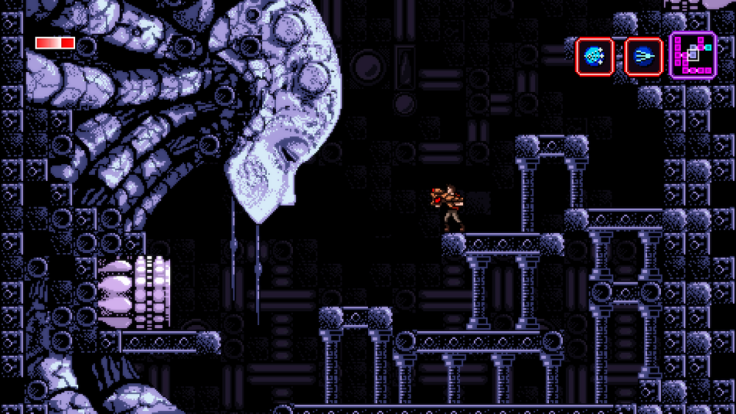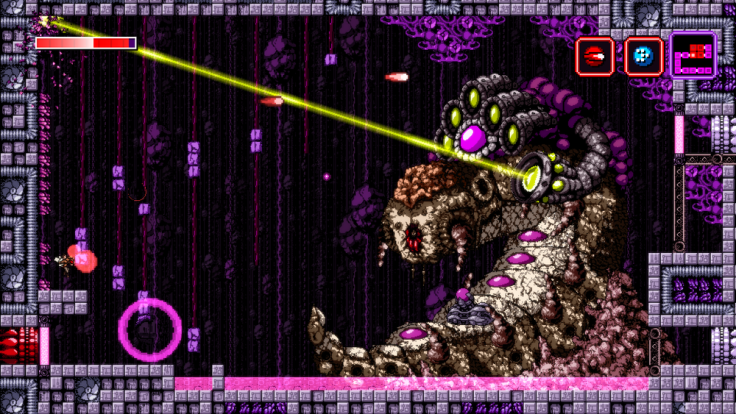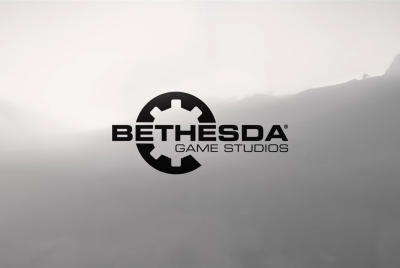Axiom Verge interview: Creator Tom Happ on solo development, upcoming PC version and sequels

Axiom Verge would be an impressive video game even if it were made by a team of 30, so for one person to have designed, developed and scored every facet of it makes this indie sci-fi one of more incredible feats in gaming for years.
Released in late March, Axiom Verge is a "retro-styled action-adventure game about exploration", said Tom Happ, the man responsible for its creation. "You explore the world, discover lots of hidden weapons, power-ups, and other important information – as well as dealing with lots of different enemies from small bugs to enormous bosses," he added.
IBTimes UK spoke to Happ about the game's initial success, the good and bad aspects of developing alone, and what is next for him after the upcoming PC version.
IBTimes UK: Axiom Verge clearly pays homage to iconic games like Super Metroid but what makes it different?
Tom Happ: One of the features that critics and players have really responded to is the mechanic of glitching. A lot of the game takes inspiration from the games I played in my childhood, back when glitches just happened, either because of dust in the cartridge, or programming bugs, or even devices like the GameGenie, which deliberately glitched the games.
I incorporated that into the game in the form of the Address Disruptor tool. Every enemy can be glitched and they can reveal surprising behaviours. Some become helpful, some more aggressive and some may even be the key to solving certain puzzles.
How has the reception from fans and critics been for you so far?
The reception has been amazing. When I started, I was thinking it would just be for me and some friends, so to hear reviewers calling it the "best game they've played in years" – and that's an actual quote – has been truly humbling and mind-blowing. One particular source of pride is that Jeff Gerstmann from Giant Bomb, a reviewer notorious for being a harsh critic, gave it a five out of five. Apparently that was the first perfect score he's given out in two or three years.
Axiom Verge started out as a side-project for you. At what point did it become a much bigger undertaking?
When I started out, I really just wanted to make a game that I would enjoy playing. I had a full-time job during most of the development and just focused on Axiom Verge during evenings and weekends. Even as press and players started to notice it more and more, I really wanted to maintain that philosophy behind the game – that it was a project that I should enjoy making and enjoy playing myself.
Probably the biggest change for me personally was when Sony decided to include it in their Pub Fund programme. In case you're not familiar with it, the way it works is that Sony gives a minimum guarantee level of sales in exchange for some exclusive time window on their console. Once I had that, it gave me the courage to switch my job to part time and eventually quit altogether so I could give all of my attention to Axiom Verge.

What have been the best and worst aspects of solo development?
The best part is that I get to have complete creative freedom on the game. I've worked on really big projects throughout my career, and it seems like anytime there's a bold new idea that someone wants to try out, there's someone else on the team that doesn't want to do it. So big games often wind up having just the least controversial elements. I loved the fact that if I wanted to include a puzzle that I thought no one might get for years, I could just do that.
The worst aspect of solo development is that it's so easy to lose the forest for the trees. I had examined and played through every detail of the game so many times that I had trouble imagining what it might feel like to someone who had never seen it before. Toward the end of development I was able to get a bunch of really good feedback from play-testers who smoothed out some of the rough edges. Most of the play-testers I had were other game developers, so they were great about giving very specific and direct feedback.
There's a rich history of video games made by one person or a lone developer with minimal outside help, do you think games of such singular vision have something – a focus perhaps- that games made by large teams simply do not?
I wouldn't say that larger teams cannot achieve this, but it's definitely a lot harder. Since I made all of the artwork, the story, and the music, all of those elements tied back to the same theme. There was never any disconnect about what the sum of the parts was meant to become.
I've seen a lot of other teams where the level designer would be interested in creating really tough challenges for a hardcore gamer, but the artist would have more of a cute approachable art style. When that happens, there's a bit of a disconnect. For a large team, you really need one person directing the project with a strong vision of how all of the pieces fit together.
What impresses people most about you developing the game on your own is that you also put together the soundtrack. Did you ever consider getting someone in to do it or was it something you always wanted control over?
It wasn't so much about control as it was that I just enjoy writing music. Like I mentioned before, the entire goal of the project was just for me to have fun with it as a hobby. So asking somebody to write the music for my game would be like hiring someone to do my hobby for me.

The game has a range of influences from Contra to Bionic Commando, but the most obvious is Metroid. I've seen some critics who have suggested the game is too much of an homage without bringing much new to the table – personally I think that's a little unfair, but what is your take?
It's interesting that when I first started, there wasn't really going to be a lot of Metroid influence. I originally wanted to use the Yo-Yo weapon of Rygar and the grapple hook of Bionic Commando in the setting of Blaster Master and Shatterhand. It kind of started there – more with melee combat instead of shooting – but evolved over time as I discovered what was working and what wasn't.
It's also interesting that when some people point out similarities, they often refer to things that were never even in Metroid. I think a lot of people remember it through rose-tinted glasses. When they actually compare the two games there are many significant differences. I do think it's fair to point out that they're in the same genre – a genre which Metroid established – but I think there are far more differences than similarities.
How is the PC version coming along? Will that version come with any improvements or extras over the PlayStation release?
The PC version is coming along nicely. We just put up our Steam page and hope to announce our release date in the next couple days. There are a few new features that will be included in the Steam version that aren't yet in the PS4 version, but the plan is to bring those back into the PS4 version as quickly as possible.
Do you have any ideas about your next game? Do you think you'll be developing your next project on you own again or would you like to start growing a team?
I really enjoy working on my own, so I expect I'll do that again. Right now, there's still a lot of work to be done on Axiom Verge. I guess one of the disadvantages of working alone is that I can only do one thing at a time. I still need to bring any improvements in the Steam version back to the PS4 version, launch the game in Asia, and start the porting process to other consoles, though that will be a while from now.
I also have a baby on the way, so I expect that will take up a lot of my time. But I am eager to get started on a sequel to Axiom Verge. I don't want to spoil anything for those who haven't played it yet, but the storyline leaves a lot of options for sequels and prequels. I'm hoping to work on the Axiom Verge franchise for a very long time.
© Copyright IBTimes 2025. All rights reserved.


















